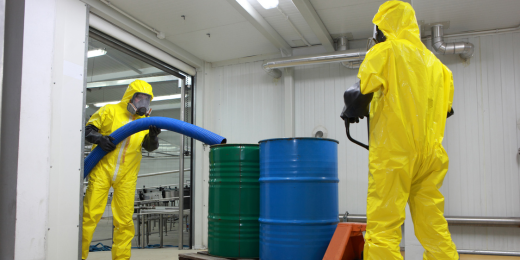Reclaim Waste for Dummies
Reclaim Waste for Dummies
Blog Article
Excitement About Reclaim Waste
Table of ContentsThe Greatest Guide To Reclaim WasteHow Reclaim Waste can Save You Time, Stress, and Money.The Ultimate Guide To Reclaim WasteAn Unbiased View of Reclaim WasteSome Known Questions About Reclaim Waste.
Explore the types, events, and kinds of fluid waste. Domestic sewage waste refers to the waste and items from a residential septic storage tank. This kind of waste is created by human beings in homes, schools, and other structures. This only includes septic tanks that have a drain area. The appropriate monitoring and disposal of residential sewage waste need liquid waste to be moved to a sewage therapy plant where the proper approaches and tools are put on purify and take care of waste.
Commercial waste frequently includes possible threats, such as combustible products or a combination of fluid and strong waste items, and requires an advanced and thorough disposal procedure. The disposal of commercial waste normally entails the filtration of waste before transportation to make sure safe and proper disposal. Hazardous waste is created from results and drainage of commercial procedures and manufacturing.
This sort of waste can not make use of the same sewer administration transport or processes as septic or business fluids. The commercial waste administration process needs the examination and screening of fluid waste prior to it undergoes the disposal procedure (liquid waste disposal). Drainage waste is the liquid waste that comes from drainage and excess stormwater in extremely booming areas or cities
Overflow waste can trigger contamination and flooding if not handled effectively. Guaranteeing proper waste administration can protect against disasters and minimize environmental damage.
Little Known Facts About Reclaim Waste.
Get in touch with PROS Services today to discover our waste monitoring and disposal services and the appropriate means to take care of the fluid waste you create.
(https://reclaimwaste1.mystrikingly.com/blog/efficient-liquid-waste-disposal-in-melbourne-why-reclaim-waste-is-your-go-to)Do you recognize what occurs to your water when you draw the plug, flush the bathroom or drain the cleaning device? No? Well, it's worth recognizing. This supposed 'wastewater' is not only an important resource however, after therapy, will certainly be launched to our land, rivers or the sea. Utilized water from bathrooms, showers, bathrooms, kitchen area sinks, washings and industrial processes is known as wastewater.

water utilized to cool equipment or tidy plant and devices). Stormwater, a kind of wastewater, is runoff that streams from farming and city locations such as roof coverings, parks, yards, roads, courses and gutters right into stormwater drains, after rainfall. Stormwater moves browse this site neglected directly to local creeks or rivers, at some point getting to the ocean.
Fascination About Reclaim Waste
In Queensland, the majority of wastewater is dealt with at sewage therapy plants. Wastewater is transferred from domestic or industrial websites through a system of drains and pump terminals, known as sewage reticulation, to a sewage treatment plant. Regional governments develop, maintain and run most sewage therapy plants. Operators are licensed under the Environmental Security Act 1994 to discharge cured wastewater at an appropriate ecological standard into waterways.
The Department of Natural Resources recommends local governments concerning handling, operating and maintaining sewage systems and treatment plants. In unsewered locations, city governments may call for homeowners to install specific or household sewage treatment systems to deal with residential wastewater from commodes, kitchens, shower rooms and washings. The Division of Natural Resources authorizes the use of home systems when they are verified to be efficient.
In some brand-new neighborhoods, treatment of some stormwater to remove clutter, sand and crushed rock has actually started using gross pollutant traps. Wastewater therapy happens in 4 stages: Removes solid issue.
Wastewater after that streams right into huge containers where solids resolve and are gotten rid of as sludge. Oil and scum are skimmed from the surface. Utilizes little living microorganisms called micro-organisms to break down and remove remaining liquified wastes and fine bits. Micro-organisms and wastes are incorporated in the sludge. Eliminates nitrogen and phosphorus nutrients that might create algal flowers in our rivers and threaten aquatic life.
Getting The Reclaim Waste To Work
Nutrient elimination is not readily available at all sewage treatment plants since it requires costly specialized equipment. Clear fluid effluent created after treatment might still have disease-causing micro-organisms - liquid waste disposal.

This typically indicates wastewater has actually to be dealt with or impurities removed prior to it can be discharged to waterways. A lot of wastewater moves right into the sewerage system. Under the Act, local governments carry out authorizations and licences for environmentally relevant tasks (Periods) including wastewater releases that could have a neighborhood influence. The department provides authorizations and permits to Periods involving wastewater releases that could have a local or statewide influence.
The 8-Second Trick For Reclaim Waste
Or else, samples are considered lab evaluation. Often numerous examinations are required to develop the degrees of each of the different toxins such as oils, heavy metals and pesticides in water. Surveillance supplies accurate information about water quality and can validate that licence problems are being met. The details acquired through tracking offers the basis for making water quality decisions.
Report this page